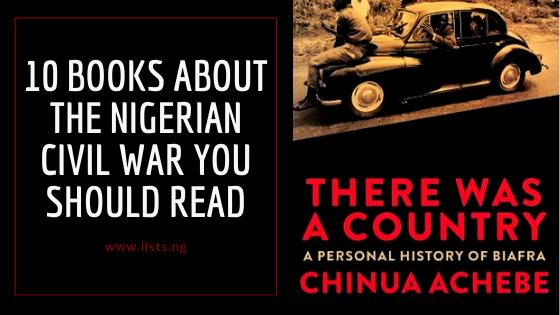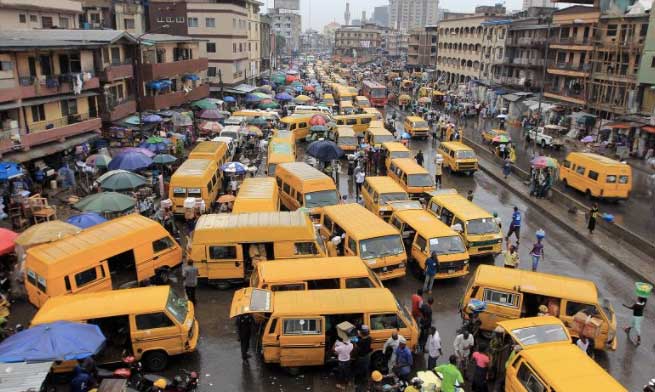As we mark 50 years since the end of one of the most devastating conflicts in the history of West Africa, it is imperative that we do not forget those events that shaped the history of Nigeria. Over the years, several literature have been released with different accounts and perspectives of the civil war, otherwise known as the Biafran war, these books have offered the opportunity for those who witnessed the war to reflect and most importantly offered insight to those who never witnessed it.
In that respect we have curated ten important books about the war that everyone should read.
The International Politics of the Nigerian Civil War, 1967-1970 (2016) – John J. Stremlau
Biafra’s declaration of independence on May 30, 1967, precipitated a civil war with important implications for the territorial integrity of all newly independent African states. Allegations of genocide commanded the world’s attention and brought forth unprecedented humanitarian intervention. This full account of the internationalization of that conflict draws on hitherto confidential records and more than two hundred interviews with foreign policymakers, including Yakubu Gowon and C. Odumegwu Ojukwu.
Surviving a war by God’s Grace (2013) – Daniel N Okoro
Surviving a War by God’s Grace is Okoro’s candid memoir of life as a child soldier, it is about the triumph of one man’s humanity over the most atrocious of circumstances. His goal as an author is to engage the public in healing and therapeutic discussions about the nature of war and its devastating consequences
Oil, Politics and Violence: Nigeria’s Military Coup and Culture 1966-1976 (2009) – Max Siollun
There is no history of the war without a history of the military. And on this topic, a critical text is Siollun’s. Oil, Politics and Violence is a thoroughly researched account of post-independence Nigeria’s military up until 1976. The crucial period for Biafra readers, are the years leading up to the outbreak of war. Siollun provides extensive detail on the expansion of the Nigerian armed forces after independence, and the events surrounding the two coups in 1966.
A Social History of the Nigwerian Civil War: Perspectives from Below (1997) – Axel Harneit-Sievers, Jones O. Ahuazem, and Sydney Emezue
This is a social history study of the Nigerian Civil War and post-war reconstruction after 1970. It records experiences and perceptions of people from within the former war-affected area who – unlike a number of famous politicians and generals – normally do not publish autobiographies. Topics covered are: everyday life under war conditions and the experiences of vulnerable groups, like refugees and women; the experience of military violence and the perception of politics by `ordinary’ people; the experience of the end of the war, traumatic in many cases; and the problems people faced in the reconstruction process after 1970. The study also looks at the ways the war experience is viewed and interpreted in South-Eastern Nigeria today. Thereby, it also contributes to the understanding of current politics in Nigeria, particularly from the perspective of the former war-affected area.
Crisis and Conflict in Nigeria: A Documentary Source Book, VOL. I & II – Anthony Kirk-Greene
Anthony Kirk-Greene offers his own narrative of how the war came about, but also gives insight about the war with a compilation of speeches, press reports, radio broadcasts and other primary material, from both warring sides. This book is particularly useful for researchers or students writing essays or dissertations on the war.
Sunset in Biafra (1973) – Elechi Amadi
Sunset in Biafra (1973), Elechi Amadi’s only work of nonfiction, gives a very personal account of his unpleasant experiences as a soldier and civilian during the Biafran conflict. He portrays not only himself but also his Ikwerre people as having been forced into a sad and needless war against Nigeria by their ambitious and pompous Igbo neighbors.
On a Darkling Plain( 1989) – Ken Saro-Wiwa
On a Darkling Plain is Saro-Wiwa’s account of events which led tothe Nigerian Civil War, the event of the civil war and, the aftermaths of the civil war particularly from the point of view of the plight of the Rivers people caught up in the war in the Eastern Region of which was dominated by the Igbos.
The Politics of Post-War Demobilisation and Reintegration in Nigeria (2010) – Olukunle Ojeleye
This book provides an in-depth study of the modalities and processes of the demobilisation and reintegration exercises carried out at the end of the Nigerian civil war and assesses their implications for national politics in the West African nation. The author identifies the political, socio-economic and cultural background to the Nigerian civil war and discusses the central theme of demobilisation, disarmament and reintegration (DDR) in Nigeria against the backdrop of the policy of the country’s post war reconstruction, reconciliation and rehabilitation exercise (the 3Rs).
There Was a Country: A Personal History of Biafra(2012) – Chinua Achebe
This is Achebe’s personal account of the Nigerian civil war, the book is a combination of history and memoir, with striking firsthand experience and years of research and reflection. This was decades in the making, and it is considered one of the authors best works.
The Biafra Story: The Making of an African Legend (1969) – Frederick Forsyth
This book which marked Frederick Forsyth’s transition from journalist to author is a record of one of the most brutal conflicts the Third World has ever suffered, it has become a classic of modern war reporting. It voices one man’s outrage not only at the extremes of human violence, but also at the duplicity and self-interest of the Western Governments – most notably, the British, who tacitly accepted or actively aided that violence.
Sources: Book authority & The Republic



